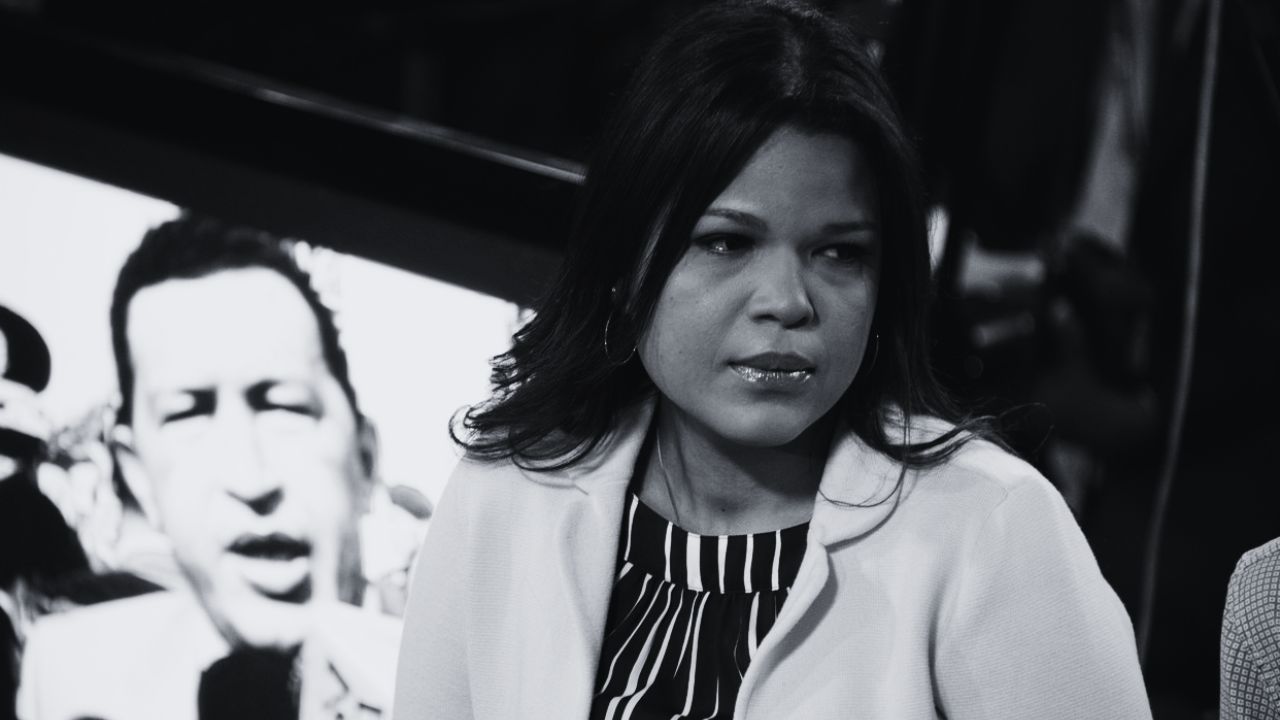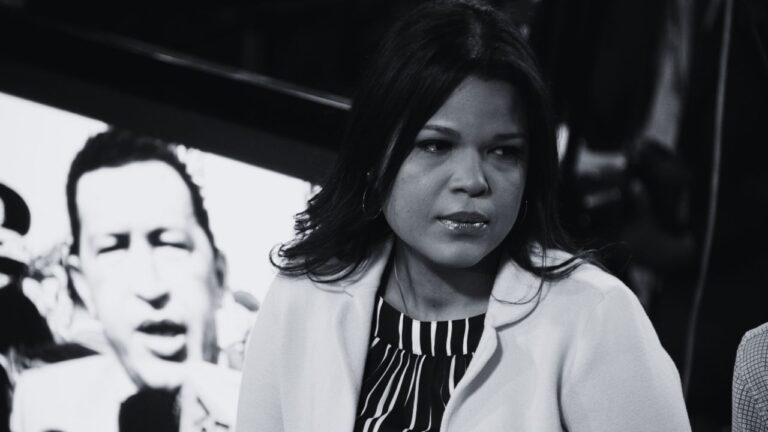María Gabriela Chávez Colmenares, the youngest daughter of the former Venezuelan President Hugo Chávez, is a name that reverberates through the modern history of Venezuela. She is not just known for her lineage, but also for her diplomatic career, her role during a significant moment in Venezuelan history, and her time as the acting First Lady of the country.
Early Life and Education
María Gabriela Chávez was born on March 12, 1980, as the youngest of three siblings from Hugo Chávez’s first marriage with Nancy Colmenares. As a child, she grew up witnessing firsthand the political landscape of her country, which would later play an essential role in shaping her career.
She began her higher education by studying International Studies at the Central University of Venezuela. However, she later found her calling in Social Communication, for which she transferred to the Bolivarian University of Venezuela. It was here that she graduated, equipped with the knowledge and skills that would prove invaluable in her later public and diplomatic roles.
Role During the 2002 Coup Attempt
2002 was a tumultuous year for Venezuela. A coup d’état attempt against her father, Hugo Chávez, threw the country into chaos. But amid this turmoil, María Gabriela emerged as a key figure. She was instrumental in contacting journalists and reporting that a coup was underway. This act of courage played a crucial role in controlling the narrative of events as they unfolded.
Her quick thinking didn’t stop there. She reached out to Fidel Castro for advice and followed his counsel to declare to the international media that her father had not resigned. This declaration helped quell the rumors and misinformation spreading during this critical time in Venezuelan history.
Acting as First Lady of Venezuela
Following her father’s separation from Marisabel Rodríguez in 2003, María Gabriela took on a new role – acting as the First Lady of Venezuela. She stepped into this role with grace and dignity, accompanying her father on official trips and events, and acting as a bridge between him and the Venezuelan people.

Her time as First Lady was not just about ceremonial duties. It was also about understanding and empathizing with the people of her country. She used her unique position to promote her father’s vision and policies, helping to shape the future of Venezuela.
María Gabriela Chávez’s early life, education, and experiences have made her a compelling figure in Venezuelan history. From her role during the 2002 coup attempt to her tenure as the acting First Lady, she has shown resilience and a deep understanding of her nation’s politics. And as we will see in the next part of this article, her journey was only just beginning.
Diplomatic Career
María Gabriela Chávez’s career evolved significantly following her tenure as the acting First Lady of Venezuela. Her skill set, developed through years of exposure to political affairs and her substantial educational background, positioned her perfectly for a diplomatic role. She transitioned into the diplomatic arena, bringing her unique understanding of Venezuelan politics to her new responsibilities.
Her diplomatic career began with key assignments, each one showcasing her ability to handle delicate situations and negotiate on behalf of her country. Her diplomatic acumen shone through, echoing her father’s legacy and his belief in diplomacy as a tool for conflict resolution and international cooperation.
Appointment as Alternate Ambassador to the United Nations
In August 2014, María Gabriela’s diplomatic career reached a new height. She was appointed as the Alternate Ambassador of Venezuela to the United Nations. This role granted her a global platform to voice and represent Venezuela’s interests, policies, and perspectives.
Her appointment to such a prestigious role was a testament to the confidence that the Venezuelan government had in her abilities. It also reaffirmed her status as a key figure in the political landscape of Venezuela, taking on international responsibilities and representing her country on a global stage.
Controversies and Allegations
However, her journey was not without hurdles. María Gabriela Chávez has faced several controversies and allegations over the years. One such instance involved an irregular contract with an Argentine company, a claim she strongly denied.
Another controversy arose when allegations surfaced about her holding significant wealth in foreign bank accounts. These allegations were met with staunch denial from María Gabriela and her lawyer, who labeled them as defamation attempts.
Despite these controversies, María Gabriela has continued to maintain her public roles and duties. She has consistently denied any wrongdoing, firmly standing her ground against the allegations thrown her way.
In the next part of this article, we will explore more about the challenges María Gabriela has faced, including her ban from entering Colombia and public criticisms directed towards her. Stay tuned as we delve deeper into the life and career of María Gabriela Chávez, a key figure in Venezuelan history.
Ban from Entering Colombia
María Gabriela Chávez’s journey has not been without its share of challenges. One of the most significant of these came in the form of a ban from entering Colombia. This ban was a direct result of her close relationship with and support for the Nicolás Maduro regime, which has often been at odds with Colombia’s government.
This ban imposed by the Colombian government is quite telling about the challenges María Gabriela faced in her diplomatic career. It affected her ability to perform her duties, particularly her role as the Alternate Ambassador of Venezuela to the United Nations. It also highlighted the tensions that exist between certain countries and the Venezuelan government.
Public Criticisms and Petitions
In addition to the challenges she faced within the Latin American region, María Gabriela also faced criticism from the international community, particularly from the United States. Criticisms were directed at her for her views on democracy in the United States and her representation of the Venezuelan government, which some consider a “”narco regime”” or a “”terrorist state.””
These criticisms culminated in public petitions calling for her deportation from the United States. These petitions are a testament to the polarizing figure that María Gabriela Chávez has become. They highlight the stark contrasts between those who support her and the Venezuelan government and those who oppose them.
Despite the criticisms and petitions, María Gabriela has remained steadfast. She continues to defend her position and the Venezuelan government, highlighting her resilience and commitment to her country.
Conclusion
María Gabriela Chávez’s life and career are a testament to her resilience and dedication to her country. From her early years witnessing the political changes in Venezuela, to her time as First Lady and her diplomatic career, she has remained a key figure in Venezuela’s political landscape.
Her journey has not been without challenges. She faced a ban from Colombia and faced public criticism and petitions calling for her deportation from the United States. Despite these challenges, María Gabriela has stood her ground, defending her actions and the Venezuelan government.
As we continue to delve deeper into María Gabriela Chávez’s life and career in the subsequent parts of this article, we will better understand the complexities and challenges she faced. We will also gain insights into her resilience and commitment to her country and its people. Stay tuned for more.
Also Read:

